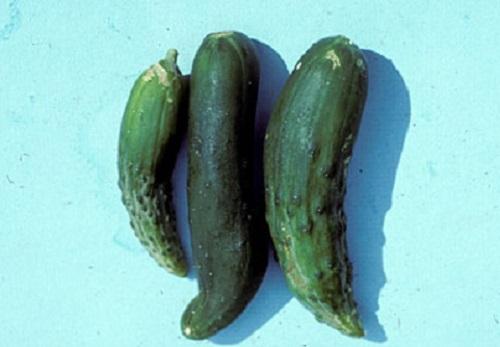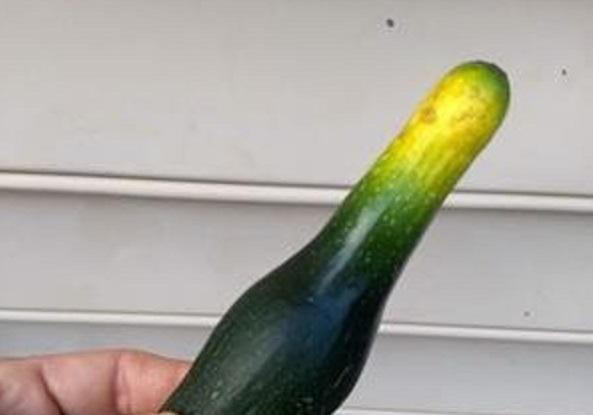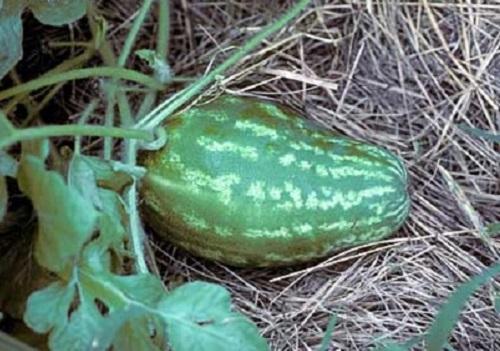Pollination problems can be the cause of deformed vegetables

Crops in the plant family Cucurbitaceae such as cucumber, muskmelon/cantaloupe, squash, pumpkin, and watermelon require cross-pollination to produce fruits. Separate male and female flowers are produced on the same plant (muskmelon/cantaloupe plants produce male flowers and perfect flowers with male and female organs). Pollinator insects move pollen from the male flowers to the female flowers where the pollen can fertilize the ovules (tiny seeds) inside the ovary (the very small fruits that appear below the female flowers). When the seeds are fertilized the fruit enlarges. Twisted or deformed squash are the result of insufficient pollination.
Blooms on plants in this family typically are only open for one day. Blooms will simply drop off the plant if they are not pollinated. This can be caused by low bee activity due to cool, wet temperatures or from pesticide sprays. Undeveloped fruits will drop off with blooms or may drop several days afterward due to the same lack of pollination and fertilization. Do not apply insecticides (other than insecticidal soap or horticultural oil) in the vegetable garden during the bloom period.

